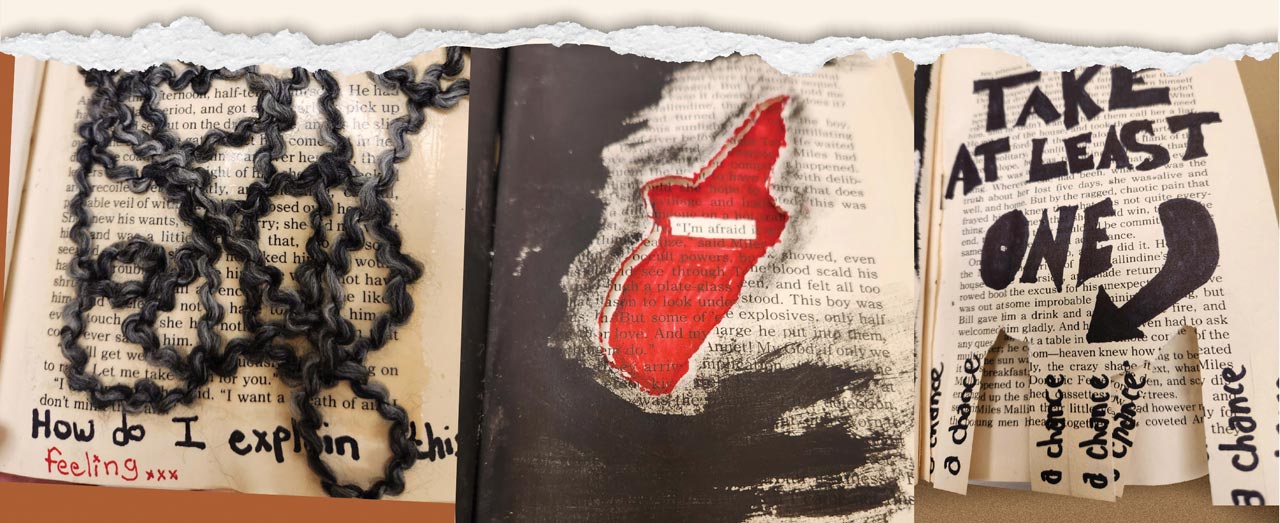“Some patients are hesitant to journal, especially if another person has read their private thoughts in the past,” says Senior Allied Clinical Therapist Jill Gardner, ATR-BC, LCAT. “Altered books can serve as a safer container for the past trauma and strong emotions that have been held for so long by the body.”
Gardner makes special visits to a nonprofit organization called The Book Thing of Baltimore to source the free books, ensuring that the content and length are appropriate for patients. During art therapy sessions, she asks participants to select a book and create a collage with their name on a blank page. Next, she guides them to find a page that includes a word, phrase, or sentence that holds meaning for them, and highlight those words by painting the rest of the page black.
From there, patients can select various art supplies to transform pages of their book. Since the books are convenient, portable containers, they can also work on them at home and after discharge.
“I’ve had patients come back to show me their finished books with a great sense of pride,” adds Gardner. “These unique works of art tell a moving story of the recovery journey.”
Patient art shared with patients' permission.



